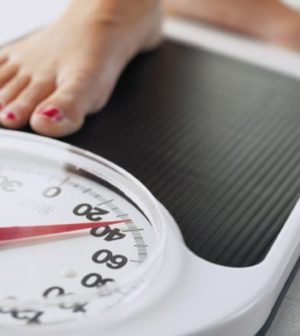- 10 Strategies to Overcome Insomnia
- Could Artificial Sweeteners Be Aging the Brain Faster?
- Techniques for Soothing Your Nervous System
- Does the Water in Your House Smell Funny? Here’s Why
- Can a Daily Dose of Apple Cider Vinegar Actually Aid Weight Loss?
- 6 Health Beverages That Can Actually Spike Your Blood Sugar
- Treatment Options for Social Anxiety Disorder
- Understanding the Connection Between Anxiety and Depression
- How Daily Prunes Can Influence Cholesterol and Inflammation
- When to Take B12 for Better Absorption and Energy
Weight Loss May Not Affect Fertility Treatment Success

Losing weight before beginning fertility treatment doesn’t boost the odds that a woman who is obese will have a successful pregnancy, a new study shows.
Obesity has been linked with difficulty conceiving, as well as pregnancy complications and loss. Many women who are obese and want to get pregnant are advised to lose weight to improve their likelihood of having a healthy baby.
“Although it differs from current clinical standards of care, there’s just not enough evidence to recommend preconception weight loss in women with obesity and unexplained infertility,” said study leader Dr. Richard Legro, chair of obstetrics and gynecology at Penn State Health’s Milton S. Hershey Medical Center in Hershey, Pa.
The new study adds to growing evidence that losing weight before infertility treatment does not improve the chances of a successful pregnancy if the woman is obese, Legro said.
This study included more than 300 U.S. women who were obese and had unexplained infertility. They were divided into two groups. One group stepped up their physical activity and received guided weight loss featuring meal replacements and medication. The other group increased their physical activity but received no guided weight loss.
They followed these regimens for 16 weeks before beginning three cycles of infertility therapy consisting of ovarian stimulation and intrauterine insemination.
The women in the guided weight loss group lost an average of 7% of their body weight, while those in the other group had no notable weight loss.
But researchers found no significant differences in the number of pregnancies and healthy births between the two groups, according to findings published Jan. 18 in PLOS Medicine.
Researchers noted that though losing weight may not improve the likelihood that a woman who is obese will have a healthy baby, doing so may provide other health benefits.
Some of the women in the guided weight loss group had lower blood pressure and a reduction in waist circumference, they pointed out.
About 40% of U.S. women between 20 and 40 years of age are obese.
More information
The U.S. National Institute of Child Health and Human Development has more on infertility treatments.
SOURCE: Penn State, news release, Jan. 18, 2022
Source: HealthDay
Copyright © 2026 HealthDay. All rights reserved.










